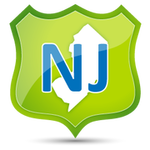New Jersey Seafood HACCP Safety Training
Food Handler's Cards - ANSI Certified Food Manager
New Jersey Seafood HACCP Safety Training is necessary for workers in the seafood retail, service, and processing industries - such as fishermen, seafood processors, packers, importers, and retailers, seafood safety inspectors, health professionals, and students interested in seafood careers - who are responsible for handling and keeping seafood products safe for customers.
The Seafood HACCP Safety Training Course was designed to meet the training requirements established under the FDA mandatory Seafood HACCP Regulation (21 CFR Part 123). Likewise, this course was developed to provide an easy method for individuals in the seafood industry and regulatory community to obtain training on Seafood HACCP Principles anywhere and anytime.
New Jersey Seafood Safety Regulations, Rules & Guidance
U.S. Food and Drug Aministration (FDA) - Seafood HACCP Guidance
- FDA - Seafood Hazard Analysis Critical Control Point (HACCP) Regulation (21 CFR Part 123)
- FDA - Good Manufacturing Practices (21 CFR Part 110)
- FDA - Seafood Guidance Documents & Regulatory Information
- FDA - Fish and Fishery Products Hazards and Controls Guidance (Webpage)
- Fish and Fishery Products Hazards and Controls Guidance (PDF)
- Fish and Fishery Products Hazards and Controls Guidance (Spanish-language translation) Orientación de controles y peligros de los productos pesqueros y piscícolas (PDF)
- FDA - National Shellfish Sanitation Program (NSSP) - Guide for the Control of Molluscan Shellfish
- FDA - Interstate Certified Shellfish Shippers List (ICSSL) - Updated Monthly List
- FDA - The Seafood List: The Seafood List is FDA's Guide to Acceptable Market Names for Seafood sold in Interstate Commerce. It is available as a searchable database.
New Jersey Seafood Regulations, Rules & Resources
- New Jersey Department of Health - Food & Drug Safety - Seafood and Shellfish Project (Website)
- New Jersey Department of Health - Seafood and Shellfish Resources
- New Jersey Department of Health - Retail Safe Handling of Shellstock (PDF)
- New Jersey Department of Environmental Protection - Division of Fish & Wildlife (Website)
- New Jersey Department of Environmental Protection - Division of Fish & Wildlife - Commercial Marine Fisheries Regulations (PDF)
- New Jersey Administrative Code - Chapter 13 – New Jersey Shellfish Rule (PDF)
- NOAA Fisheries - Greater Atlantic Region - Federal Recreational Fisheries Regulations for the Greater Atlantic Region (Website): Federal regulations are for Federal waters only (Generally 3-200 miles off shore from Maine to North Carolina) - except for bluefin tuna and shortnose sturgeon which have Federal regulations that apply in both state and Federal waters.
- Atlantic States Marine Fisheries Commission (Website) - An organization of Atlantic coastal states, coordinating the conservation and management of 25 nearshore fish species.
New Jersey Sea Grant Program Info
NOAA’s National Sea Grant College Program (See All State Table) is a network of 33 Sea Grant Programs located in every Coastal and Great Lakes State.
New Jersey Sea Grant Consortium
22 Magruder Road
Fort Hancock, NJ 07732
Phone: (732) 872-1300
Web: http://www.njseagrant.org/
New Jersey Food Safety Courses
- Seafood HACCP
- HACCP - 4hr
- HACCP - 16hr
- Food Handler
- Food Manager
Seafood HACCP Safety
Course Description
The Seafood HACCP online training course was developed to provide an easier method for individuals from the seafood industry and regulatory community to get training on the application of HACCP principles to seafood products.
The Seafood HACCP Course follows the Seafood HACCP Regulation that defines processing as handling, storing, preparing, heading, eviscerating, shucking, freezing, changing into different market forms, manufacturing, preserving, packing, labeling, dockside unloading, or holding fish or fishery products.
Information in this course comes from the Hazardous Analysis and Critical Control Point Principles (HACCP) and Application Guidelines adopted by the USDA and FDA. Code of Federal Regulations 21 CFR Part 123 - Seafood HACCP Regulation - requires all seafood companies (domestic as well as international exporters to the United States marketplace) process products in accordance to HACCP principles as specified in the regulation.
Credit Hours: 1 hr
Cost: $75.00
Course Objectives
After completing this course, the student will be able to:
- Describe why a Hazard Analysis and Critical Control Point (HACCP) management system is an effective means for assuring food safety.
- Identify and distinguish between prerequisite programs for a HACCP management system.
- Discuss areas in which employees must receive education and training in order to understand their roles in producing safe foods.
- Identify the five preliminary tasks to be completed in the development of a HACCP plan before applying principles to a specific product or process.
- Discuss the seven principles of HACCP.
- Identify and describe the two stages involved in conducting a hazard analysis.
- Name and describe examples of possible CCPs.
- Identify and discuss the seven steps seafood companies must follow to help eliminate known hazards.
- Name five ways to test fish for freshness.
Course Outline
This course will discuss the following topics:
- Lesson 1: What is HACCP?
- Lesson 2: Implementation and Maintenance of the HACCP Plan
- Lesson 3: Seafood HACCP
- Lesson 4: Consumer Steps to Safer Seafood
Completion of Course
Each quiz must be passed with a miminum of 70% to proceed to the next lesson. Upon successful completion of the course, the certificate of completion will be available from the training page.
HACCP: The State-of-the-Art Approach to Food Safety
Course Description
Accredited by the International HACCP Alliance, this course aims to teach you the importance and use of all 7 principles in order to make you a safer, more effective food service employee.
Every operation serving or selling food needs to have a food safety system in place that is designed specifically to guarantee the food being served is safe to eat. This specific food safety system is called HACCP for Hazard Analysis and Critical Control Point. HACCP is a system comprised of 7 principles that are to be applied to a written food safety program focusing on the food in your operation.
This course meets the regulatory requirement of compliance with the 2013 FDA Food Code and the USDA Requirements for School District HACCP Plan Implementation.
Credit Hours: 4 hrs
Cost: $50.00
Course Objectives
After completing this course, the student will be able to:
- Identify the key points of HACCP
- Identify the causes of food borne illness
- Explain the 7 HACCP principles
- Apply standard operating procedures for food safety and food defense in your operation
- Follow prerequisite programs for food safety
- Identify the three classifications of recipes
- Apply critical control limits
- Determine critical control points
- Determine effective corrective actions
- Complete monitoring forms
Course Outline
The course consists of the following seven units:
- Unit 1: Introduction to HACCP
- Unit 2: Food Borne Illness
- Unit 3: The Seven HACCP Principles
- Unit 4: Identifying Hazards and Determining Critical Control Points
- Unit 5: Critical Limits, Monitoring and Corrective Actions
- Unit 6: Verification and Record Keeping
- Unit 7: Overcoming Barriers to HACCP Implementation
Completion of Course
Upon successful completion of the course, the certificate of completion will be available from the training page.
Food Safety HACCP for Retail Food Establishments
Course Description
Accredited by the International HACCP Alliance, this course presents the characteristics and application of Hazard Analysis and Critical Control Points (HACCP), a risk prevention management methodology that applies appropriate science and technology to plan, control, and document safe food processes in a food facility, consistent with the FDA’s desire to implement a voluntary HACCP program.
A Certified Food Safety HACCP Manager should be able to perform the following functions: Conducting preliminary activities, conducing hazard analyses, establishing detailed control measures, conducting verification activities, conducting operational implementation activities, and conducting continuous improvement activities.
The course first examines HACCP’s principles and concepts. The HACCP approach begins by identifying biological, chemical, and physical hazards (inputs to the system) associated with facility construction, equipment, employees, food and supplies.
The course also examines the prerequisite processes (e.g., personnel hygiene and training; equipment and facility cleaning, sanitizing, and maintenance; receiving and storage); and for food processes (e.g., cooking, hot and cold holding, and cooling), this course presents scientifically validated hazard control procedures that prevent, eliminate, or reduce hazards to levels that protect public health.
Finally, this course describes how HACCP is applied through Active Managerial Control (AMC) to establish a functional food safety management system.
Credit Hours: 16 hrs
Cost: $125.00
Course Objectives
After completing this course, the student will be able to:
- Identify the biological, chemical, and physical hazards in the food offered to consumers in a food system.
- Determine which hazards are significant risks.
- Determine, write, and validate adequate controls for those hazards.
- Write a Food Safety Management Plan that provides an appropriate level of protection for customers.
- Train and supervise employees to perform controls that strive for zero customer illness or injury during the life of the business.
Course Outline
This course will discuss the following topics:
- Lesson 1: The Food Safety Problem
- Lesson 2: The HACCP Approach to Food Safety
- Lesson 3: The Food Safety Management Plan
- Lesson 4: Physical Hazards in Food
- Lesson 5: Chemical Hazards in Food: Part 1
- Lesson 6: Chemical Hazards in Food: Part 2
- Lesson 7: Biological Hazards: Part 1
- Lesson 8: Biological Hazards: Part 2
- Lesson 9: Biological Hazards: Part 3
- Lesson 10: Biological Hazards: Part 4
- Lesson 11: Personal Hygiene and Control
- Lesson 12: Cleaning and Maintenance
- Lesson 13: Supplies
- Lesson 14: Menu HACCP
- Lesson 15: Recipe Engineering
Completion of Course
Upon successful completion of the course, the certificate of completion will be available from the training page.
Food Handler Safety Training Card/Course
Course Description
Most people working in restaurants, on a mobile food truck, caterers, and non-restaurant facilities need Food Safety Training or a food handlers card. To get the card, food handling and serving personnel should complete food handling training. After completing the course, they have to present the food handlers certificate to their local authority and pay the required registration fees.
Food Handler Training is often intended for entry-level professionals in the food service industry, such as servers, chefs, cooks, cashiers, food truck workers, mobile food vendors, caterers, and even convenient store (c-store) clerks. The Food Handler Certificate will require the learner to complete a brief 2-hour training course covering basic food safety principles. Our new Learn2Serve Food Handler Certificate Training Program has National ANSI Accreditation.
The purpose and goal of the Learn2Serve Food Handler Training Certificate program is to provide individuals working in restaurants and non-restaurant facilities with an overview of food safety issues, regulations, and techniques to maintain a food-safe environment. These individuals will also be able to better understand how handling food correctly reduces risks.
ANSI Reference: http://ansi.org/Accreditation/credentialing/certificate-issuers/AllDirectoryDetails.aspx?&prgID=237,238&OrgId=536&statusID=4
Credit Hours: 2 hrs
Cost: $7.00
Course Outline
At the conclusion of the Food Handler Training Certificate program, you should be able to:
- Identify biological, physical, and chemical contamination.
- Identify foodborne illnesses, signs of food spoilage, types of food prep contamination, and proper temperature control methods.
- Safely store and prepare meat, poultry, and vegetables.
- Demonstrate effective food handling techniques that promote cleanliness and safety in food establishments.
- Discuss the importance of proper personal hygiene in the workplace.
- Implement appropriate procedures to receive and store food.
- Summarize practices for properly cleaning and sanitizing food contact materials and surface.
Course Completion:
A certificate of completion will be issued to individuals who meet the following course requirement:
- Minimum seat time of 75 minutes
- Completion of the course and successfully passing the final exam with a minimum passing score of 75%
Individuals who do not pass the exam on the first attempt will be allowed one additional attempt to review the course content and pass the final exam
Food Safety Manager Training Course & ANSI Certification Exam
Food Manager Training Course
The Food Safety Manager Principles Course provides a foundational knowledge of the FDA Food Code and covers foodborne hazards and pathogens, cross contamination, proper preparation and temperature controls, proper hygiene, proper cleaning and sanitation methods, regulations, and the proper techniques to maintain a food-safe environment.
Audience: Experienced professionals in the food service industry, such as owner, manager, person-in-charge (PIC), chef, cook, or any employee.
Course Outline
- Lesson 1: Introduction to Food Safety
- Lesson 2: Biohazards, Foodborne Disease, and Food Spoilage
- Lesson 3: Contaminants
- Lesson 4: Food and Temperature Control
- Lesson 5: Employee Health, Hygiene, and Training
- Lesson 6: Purchasing, Receiving, and Storing Food
- Lesson 7: Cleaning and Sanitizing
- Lesson 8: Pest Control
- Lesson 9: Facility Design
- Lesson 10: HACCP System Basics
- Lesson 11: FDA Guidelines for Developing a HACCP System
- Lesson 12: Developing, Implementing, and Maintaining a HACCP Plan
- Lesson 13: Seafood HACCP
- Lesson 14: Consumer Steps to Safer Seafood
ANSI Certification Exam
To be certified as a food manager, the individual must pass an accredited food safety examination - administered by a certification provider.
The Learn2Serve Food Protection Manager Certification is approved by the American National Standards Institute and the Conference for Food Protection (ANSI-CFP). With the exception of Connecticut, this accredited exam is accepted in all states/jurisdictions that have mandatory certification requirements for Food Management Professionals. Reference: ANSI (American National Standards Institute)
Help with Exam
We have partnered with PSI - a global testing, certification, and licensing provider. The exam is proctored at a PSI test center location.
After purchasing the exam, you should receive an email from PSI instructing you how to schedule your exam. If you do not receive this email, please contact support at 877.881.2235.
You can also click here to schedule exam online at a testing center near you.
Upon successful completion of the exam with a passing score, you may download and print a proof of completion document. The official certificate will be mailed within 15 business days of completing the exam.
New Jersey General Food Safety State Requirements
New Jersey requires that a person in charge, an owner or employee of a food establishment (i.e., restaurants, markets, bakeries, bars, food trucks, commissaries, and food facilities that prepare, handle, or serve non-prepackaged potentially hazardous food) demonstrate knowledge of food safety as outlined in the FDA Food Code by successfully passing an approved and accredited ANSI-CFP an 8-hour food safety certification course and examination.
Almost all states require that a person-in-charge (PIC) of a food establishment demonstrate knowledge or be certified of food safety as outlined in the FDA Food Code. Taking an approved Certified Food Protection Manager (CFPM) Training Course and passing an Exam is one way to demonstrate knowledge. Our Learn2Serve Food Protection Manager Certification is approved by the American National Standards Institute and the Conference for Food Protection (ANSI-CFP).
New Jersey Food Safety Regulations:
New Jersey Administrative Code (NJAC) – Title 8: Health – Chapter 24: Sanitation in Retail Food Establishments and Food and Beverage Vending Machines (PDF)
URL: http://www.state.nj.us/health/eoh/documents/chapter24_effective_1207.pdf
New Jersey Food Safety Contact Info
New Jersey Department Health Senior Services
Food and Drug Safety Program
PO Box 369
Trenton, NJ 08625
Phone: (609) 826-4935
Web: http://www.state.nj.us/health/foodanddrugsafety/index.shtml
Major cities served: Newark, Jersey City, Paterson, Elizabeth, Toms River, Trenton, Clifton, Camden.
New Jersey Food Safety Local Requirements




